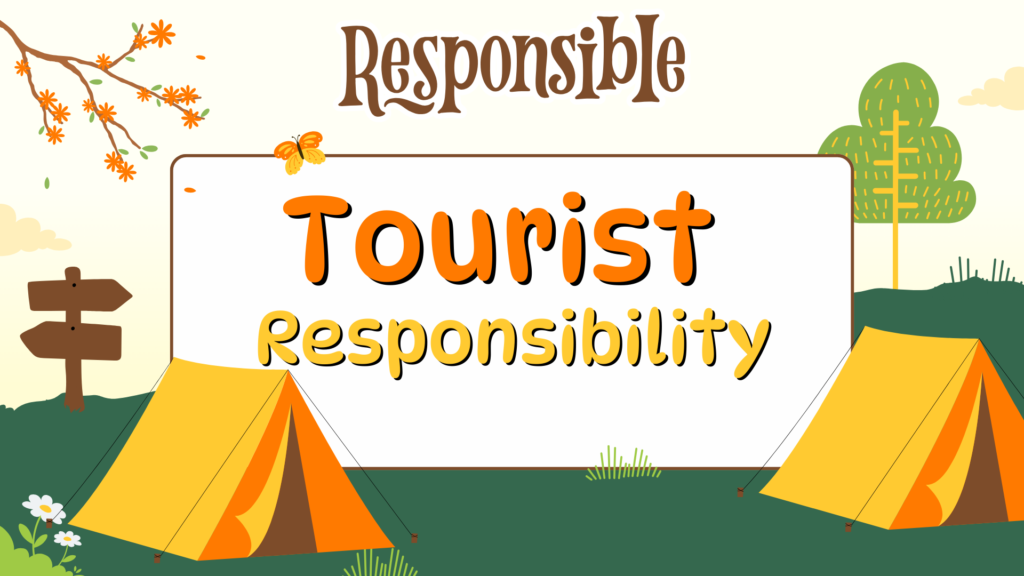Tourism, in all its splendor, has the power to shape cultures, boost economies, and offer transformative experiences. Yet, amid the picturesque landscapes and vibrant cityscapes, there lurks a less glamorous reality. The modern traveler often overlooks the profound impact their actions have on the world they explore. What if I told you that your travel habits might be perpetuating environmental degradation, cultural erosion, and social inequality? Buckle up, as we delve into some shocking truths about tourist responsibility that could revolutionize the way you travel.
The Hidden Cost of Mass Tourism
The allure of iconic destinations like Paris or Tokyo often overshadows the environmental toll taken by mass tourism. Overcrowded attractions lead to pollution, wear and tear on historical sites, and strain on local resources. For example, the stunning beaches of Thailand are experiencing severe coral bleaching due to unsustainable tourist activities. It’s not just about where you go, but how you engage with these places. Understanding the environmental footprint of your travel choices is crucial for fostering sustainable tourism.
Cultural Sensitivity or Cultural Exploitation?
Traveling provides a unique window into different cultures, yet it can also lead to cultural commodification. Indigenous communities, often portrayed in stereotypical ways, are subjected to tourism practices that disrespect their traditions. Consider the impact of ‘cultural tours’ that exploit rather than respect local customs. Responsible tourism means engaging with cultures in a way that honors their authenticity and supports community-led initiatives rather than perpetuating harmful stereotypes.
The Economic Paradox: Local Benefit vs. Leakage
While tourism can boost local economies, a significant portion of the revenue generated often leaks out, benefiting multinational corporations more than the local population. In many tourist-heavy regions, local businesses struggle to compete with international chains. For instance, in Bali, the influx of global hotel chains has driven up land prices, pushing local families out of their homes. As a responsible tourist, supporting local businesses and seeking out community-based tourism can help mitigate this economic disparity.
Waste and Pollution: The Lurking Environmental Threat

Every year, tourism generates massive amounts of waste and pollution. From plastic waste to carbon emissions, the environmental impact is staggering. In Venice, the sheer volume of waste from tourists has led to significant environmental concerns. Implementing simple practices, like reducing single-use plastics and offsetting your carbon footprint, can make a substantial difference. Every small action contributes to a larger movement towards sustainable travel.
Ethical Wildlife Tourism: The Fine Line Between Admiration and Exploitation
The desire to witness wildlife in their natural habitats often leads to unethical practices. Elephant rides, tiger petting, and other such activities frequently involve animal abuse. Responsible tourism involves supporting ethical wildlife sanctuaries and avoiding attractions that exploit animals. Educating yourself about how tourism affects wildlife can ensure your travel experiences contribute to conservation rather than harm.
The Illusion of Carbon Offsetting
Carbon offsetting has become a popular way to mitigate the environmental impact of travel, but it’s not a perfect solution. Many offset programs lack transparency and fail to deliver on their promises. While offsetting can be a part of a responsible travel strategy, it’s essential to also focus on reducing your carbon footprint through conscious travel choices, such as taking fewer flights and choosing eco-friendly accommodations.
The Social Impact: Respect and Interaction
Tourists often overlook the social impact of their visits. The presence of tourists can alter local social dynamics, sometimes leading to tension between visitors and residents. Being a responsible tourist involves engaging with local communities respectfully and contributing positively to their social fabric. This means avoiding behaviors that might be disruptive or disrespectful and understanding the local social norms.
Supporting Sustainable Initiatives
The rise of eco-tourism and sustainable travel initiatives highlights the growing awareness of responsible tourism. Many organizations and travel companies are now prioritizing sustainability, offering eco-friendly accommodations, and promoting responsible travel practices. Supporting these initiatives not only enhances your travel experience but also encourages the industry to adopt more sustainable practices.
Personal Reflection: The Role of Awareness
One of the most profound changes you can make as a traveler is developing awareness of your impact. Reflecting on your travel habits, seeking out educational resources, and engaging in conversations about responsible tourism can shift your perspective. Being mindful of the larger picture can transform your travel experiences from mere vacations to meaningful contributions to global sustainability.
Conclusion: Tourist Responsibility
Traveling should be a force for good, enriching both the traveler and the destinations they visit. By acknowledging these shocking truths about tourist responsibility, you have the power to make a positive difference. Embrace sustainable practices, respect cultural and environmental boundaries, and support initiatives that prioritize the well-being of both people and places. As you embark on your next journey, let these insights guide you towards becoming a more responsible traveler. The world is waiting for you to make a change—start today.



